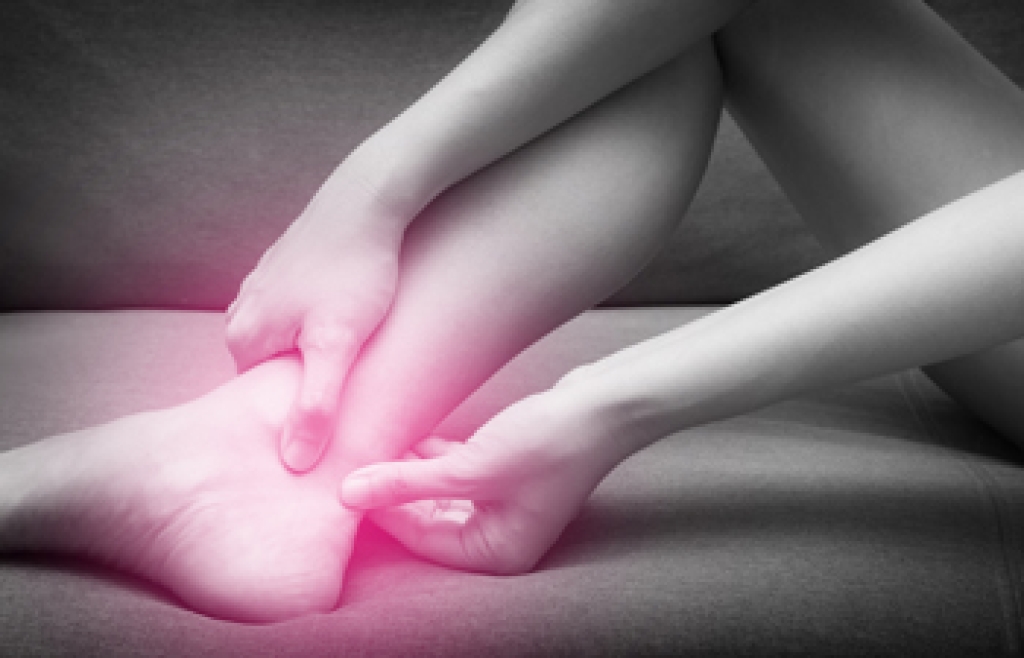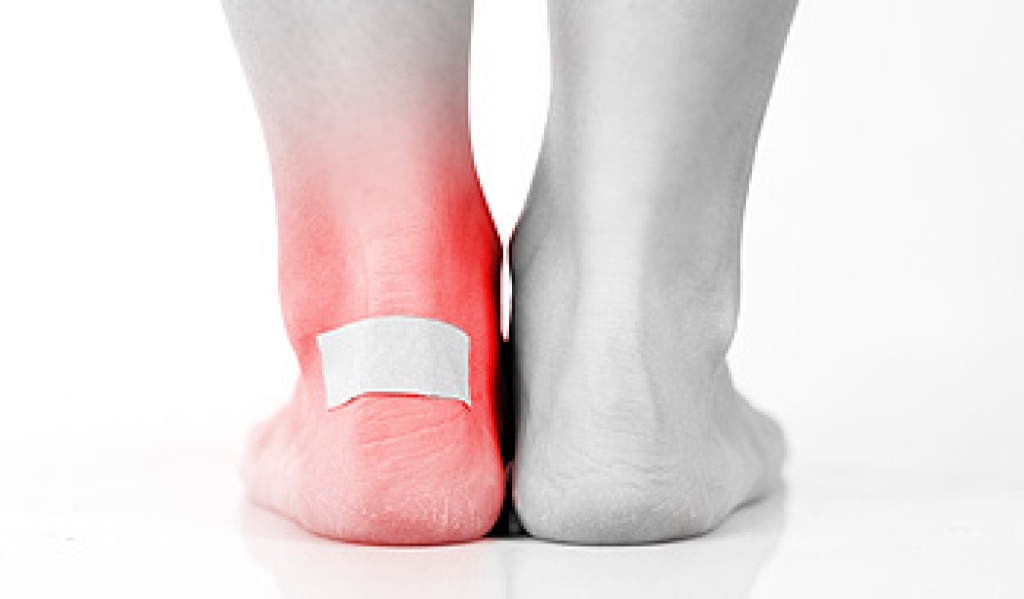 If you have heel pain that is worse in the morning, after long periods of standing, or after working out, you may have plantar fasciitis. Plantar fasciitis is a result of inflammation or a partial tearing of the tissue band that runs along the bottom of the foot, known as the plantar fascia. Plantar fasciitis is normally an overuse injury that comes from activities that put stress on the plantar fascia (like running). Because of this, the pain from plantar fasciitis usually gets worse over time. Other factors that may lead to plantar fasciitis include obesity, flat feet, high arches, or tight calf muscles. Because of the negative impact that plantar fasciitis can have on everyday activities, patients that are struggling with heel pain should consult with a podiatrist for a proper diagnosis and treatment plan.
If you have heel pain that is worse in the morning, after long periods of standing, or after working out, you may have plantar fasciitis. Plantar fasciitis is a result of inflammation or a partial tearing of the tissue band that runs along the bottom of the foot, known as the plantar fascia. Plantar fasciitis is normally an overuse injury that comes from activities that put stress on the plantar fascia (like running). Because of this, the pain from plantar fasciitis usually gets worse over time. Other factors that may lead to plantar fasciitis include obesity, flat feet, high arches, or tight calf muscles. Because of the negative impact that plantar fasciitis can have on everyday activities, patients that are struggling with heel pain should consult with a podiatrist for a proper diagnosis and treatment plan.
Plantar fasciitis can be very painful and inconvenient. If you are experiencing heel pain or symptoms of plantar fasciitis, contact one of our podiatrists from APEX Foot & Ankle Center. Our doctors can provide the care you need to keep you pain-free and on your feet.
What Is Plantar Fasciitis?
Plantar fasciitis is the inflammation of the thick band of tissue that runs along the bottom of your foot, known as the plantar fascia, and causes mild to severe heel pain.
What Causes Plantar Fasciitis?
- Excessive running
- Non-supportive shoes
- Overpronation
- Repeated stretching and tearing of the plantar fascia
How Can It Be Treated?
- Conservative measures – anti-inflammatories, ice packs, stretching exercises, physical therapy, orthotic devices
- Shockwave therapy – sound waves are sent to the affected area to facilitate healing and are usually used for chronic cases of plantar fasciitis
- Surgery – usually only used as a last resort when all else fails. The plantar fascia can be surgically detached from the heel
While very treatable, plantar fasciitis is definitely not something that should be ignored. Especially in severe cases, speaking to your doctor right away is highly recommended to avoid complications and severe heel pain. Your podiatrist can work with you to provide the appropriate treatment options tailored to your condition.
If you have any questions, please feel free to contact our offices located in Fort Myers, Shellpoint, and Naples, FL . We offer the newest diagnostic and treatment technologies for all your foot care needs.

 Blisters
Blisters

